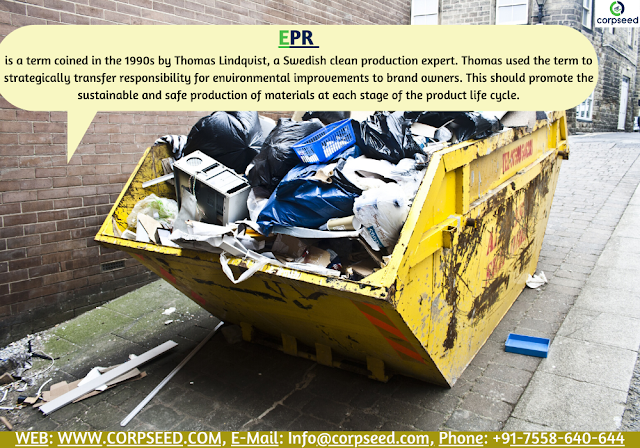Waste is something that will never end. Around the world, large amounts of E-waste are generated every year. We have entered the 21st century. Time is running out and we are seeing great population growth. Population growth simply means an increase in waste generation. This waste is not only generated in our homes, but also the industry. Proper disposal is necessary to remove this waste. Now that waste generation is increasing, more and more disposal methods must play a role. Failure to properly dispose of this waste can present a significant risk of air and water contamination.
But many countries are finding different ways to solve this problem. And here is the role of "EPR". It means "Extended Producer Responsibility" and is essentially an initiative for waste management and environmental protection. Now let's get into the details of the extended responsibility of the manufacturer.
The term EPR was first coined in the early 1990s and aims to encourage manufacturers to develop products that can be reused and recycled. It is a strategy for the good of the environment. EPR is currently a policy aimed at reducing the production of waste and, therefore, protecting the environment. Now, you may wonder to know how the EPR works. The EPR makes manufacturers responsible for building the product that is useful and recyclable in the long term. As a result, less waste is generated and the disposal problem is also resolved. This also has advantages to make reliable products, taking into account environmental compatibility.
According to Economic Co-operation and Development (OECD), the EPR (extended producer responsibility) is an environmental protection strategy, for which the manufacturer receives the key to extend the shelf life of the products.
After applying this concept, the task of manufacturers is now not only limited to product design but also extends to the proper disposal of products. If the consumer no longer wishes to keep the product, it is up to the manufacturers to return it and dispose of it properly.
Manufacturers now had to rethink their products while maintaining the concept of environmental protection and including the cost of waste management in the price of their products simply by increasing the reliability of their products. There are several types of products under EPR certification, including electrical equipment, paints, oils, etc.
Most European countries had introduced the concept of EPR manufacturers for the packaging of electrical devices and many others. In addition to Europe, the United States, Canada, Japan, China, Australia, and New Zealand have also used similar programs.


0 Comments